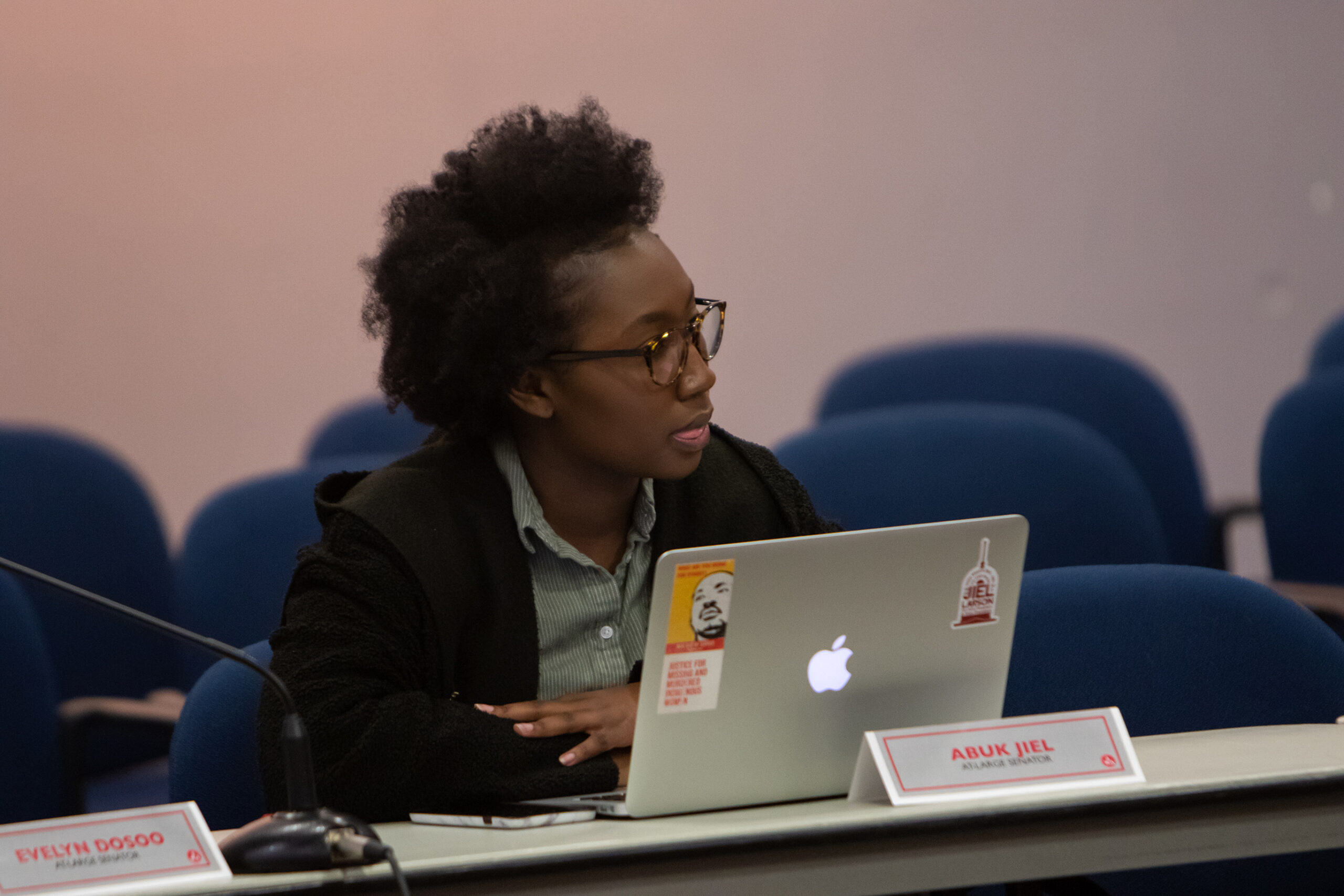
“SGA Sucks” email prompts student feedback, reflection on Student Government’s image
After the Occhipinto-Specht campaign sent an email titled “SGA Sucks” to the student body on Tuesday, the Student Government Association received feedback, criticizing the email at that night’s meeting.
The email urged students to vote for Carissa Occhipinto and running mate Shelby Specht in the current SGA presidential election. The campus-wide email contained four campaign promises, as well as the statement “SGA Sucks… but we want to fix it and help put the YOU back in USD.”
Garrett Keegan, a third-year law student and former SGA senator from the law school criticized the campaign and the email.
“Telling the entire student body that the students they elected to represent their interests suck isn’t going to better serve those students. These types of smear campaigns do not further the message you’re trying to convey,” Keegan said. “We should not be quick to turn to insults or backhanded comments to get our point across. It’s the students that lose when we do that.”
Keegan replied to the email and passed out copies of the email and his response at the meeting.
Occhipinto and Specht were absent from the meeting, but in an email statement to The Volante stated their platform is a critique of the institution of Senate, not the people serving on it.
“The intention of our campaign was never meant to ‘defame,’ ‘disparage,’ ‘slander,’ or ‘insult’ anyone who currently serves or has served on Senate in any capacity…” the email stated. “It is unfortunate our words and intentions have been received in this way by our fellow members of Senate, who have been with us through the struggles SGA has experienced this year.”
SGA presidential candidate Katie Brust wasn’t informed of the email until the meeting. Brust said the email may affect SGA’s reputation among the student body.
“It’s important to keep in mind that one should run their campaign with integrity and it’s important to consider how these messages will reflect back on SGA,” Brust said. “It’s important for students to understand that while parts of the Senate may disagree with how we act as a whole, there’s been a lot of great things that we’ve been collaborative on.”
Abuk Jiel, the third SGA presidential candidate, said she found the email disheartening and said the message is indicative of the senators’ time on SGA.
“I think it speaks loudly for how they both feel about SGA in general. If you think this organization sucks as is, what have you been doing as a senator to fix that? I don’t know what makes them think being executive members or president/vice president will change that in any way,” Jiel said.
SGA also saw the introduction of a bill that would officially give SGA’s Election Steering Committee the final authority in resolving issues that arise when a presidential candidate and vice-presidential candidate split.
Campaign splits, which happened twice this election season, have no official legislation concerning how they are resolved. While both were resolved by the Election Steering Committee, the bill would cement the committee’s role in resolving these issues in the organization’s bylaws.
Kevin Huizenga, Election Steering Committee chair, intended to sponsor the bill, but it was picked up by Brust, who was personally affected by a campaign split.
“I hope this never happens to anyone again, but in the event that it does, I want them to have the security that I did not,” Brust said. “Since it’s affected two campaigns, I think it’s important for that to be held as a precedent.”
Four senators — Jiel, Brust, Macy Halverson and Sophia Lima — introduced a bill to establish programs to educate USD students about the impact of racist and derogatory language.
The bill was introduced in reaction to the Strollers show and a tweet the organization sent promoting the emcee which contained racist language.
SGA can’t take action against the Strollers organization because such action would violate the organization’s right to free speech. Lima said she hopes the programs established by the bill will prevent future incidents.
“(We’re) trying to get at creating educational opportunities and initiatives for students to become knowledgable on these topics so (incidents) are less likely to occur because students didn’t know saying these things was harmful to others,” Lima said.

